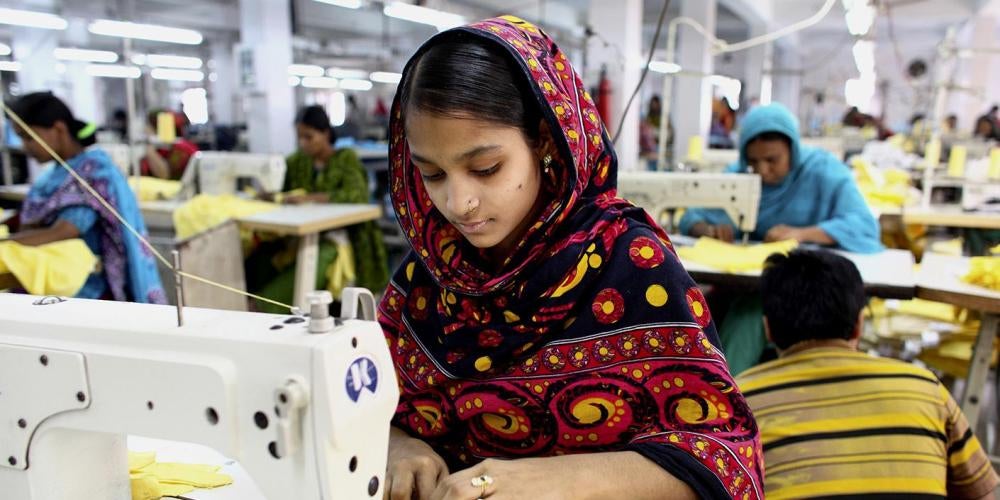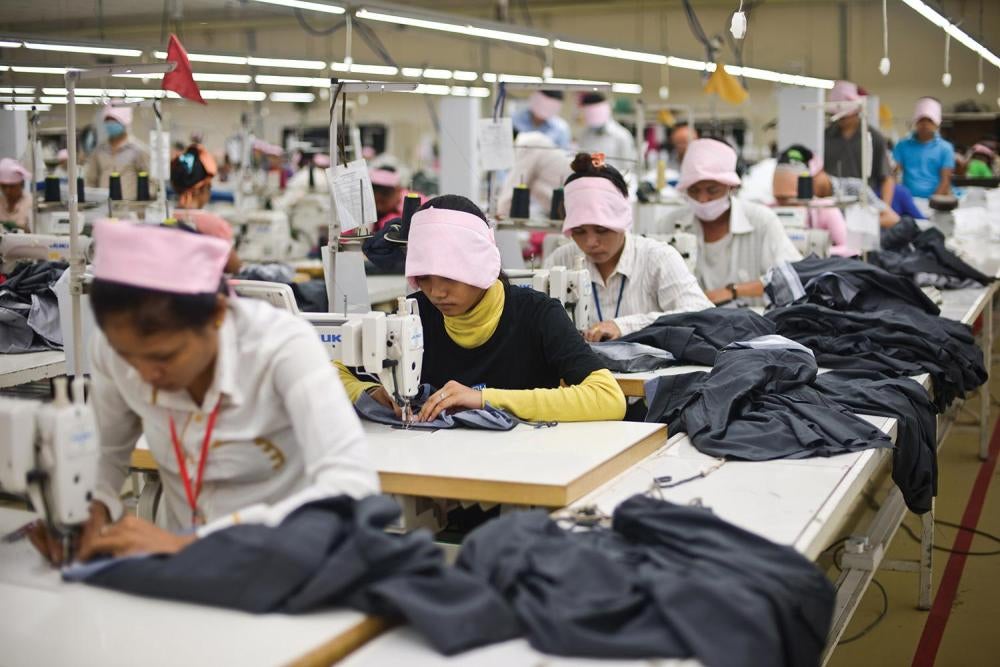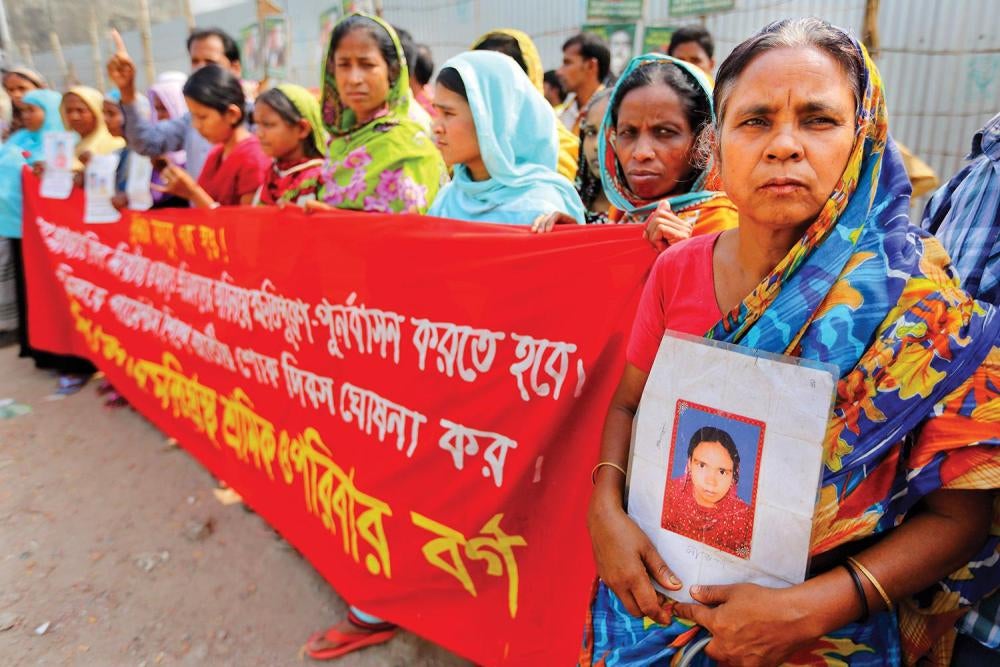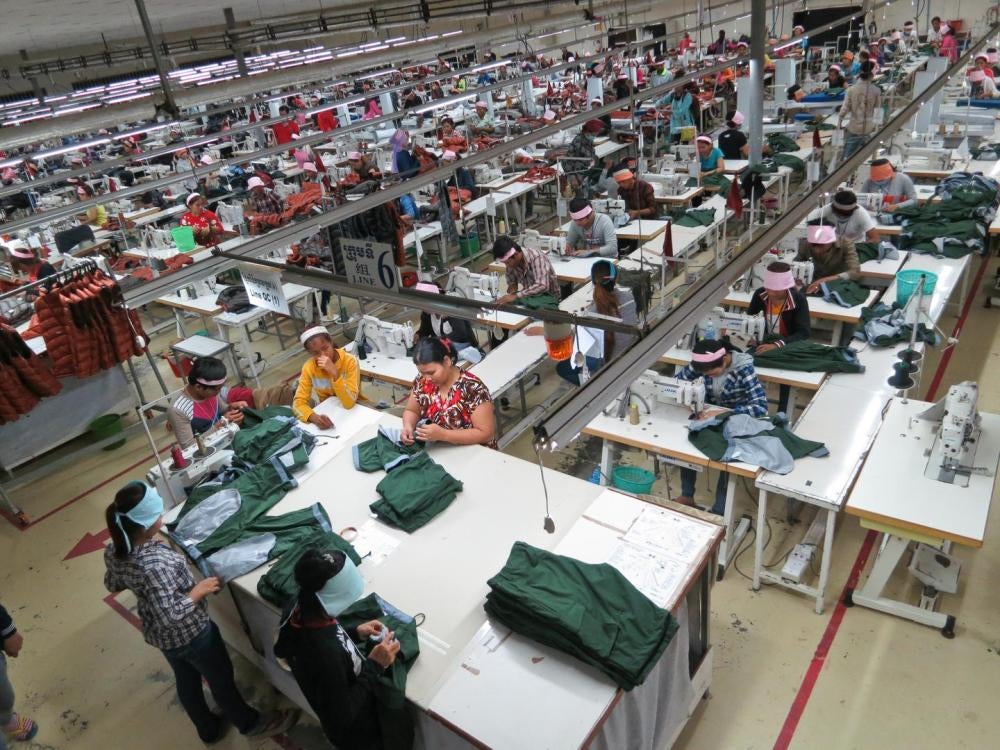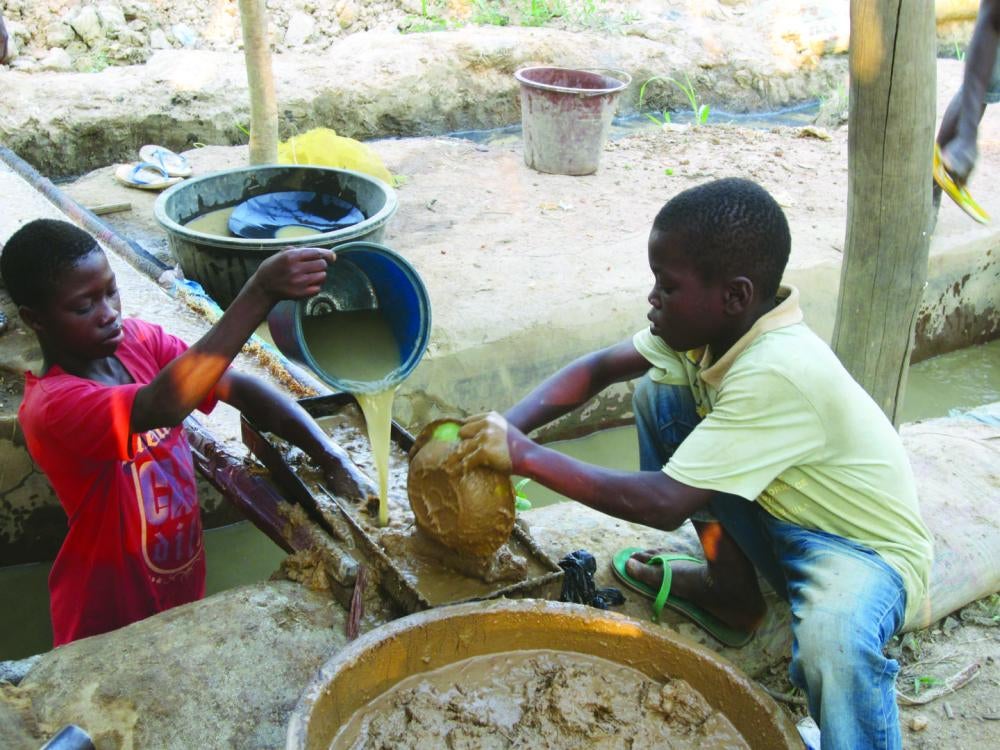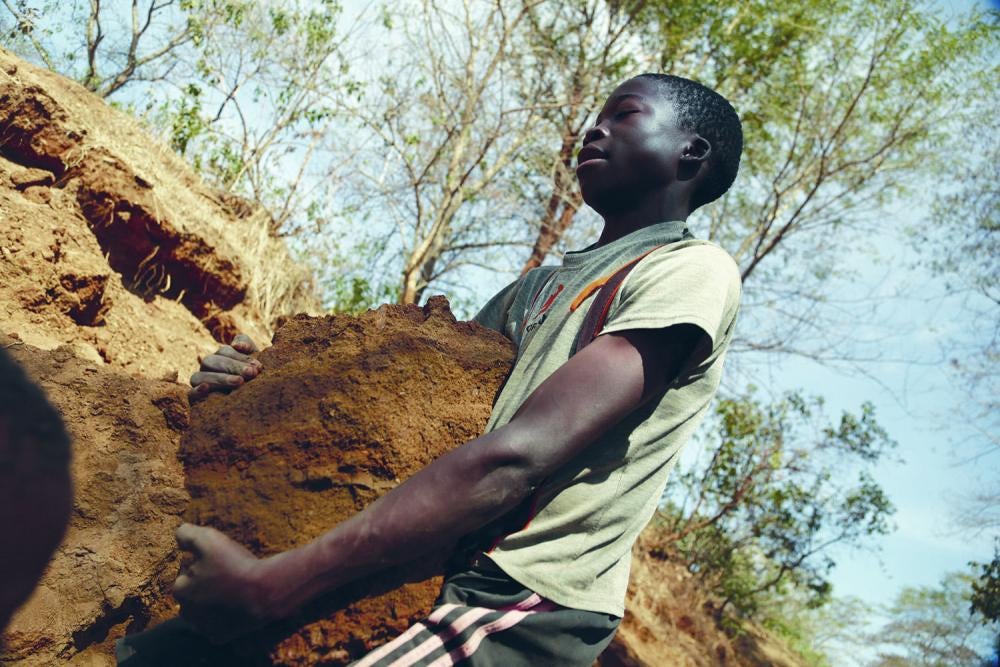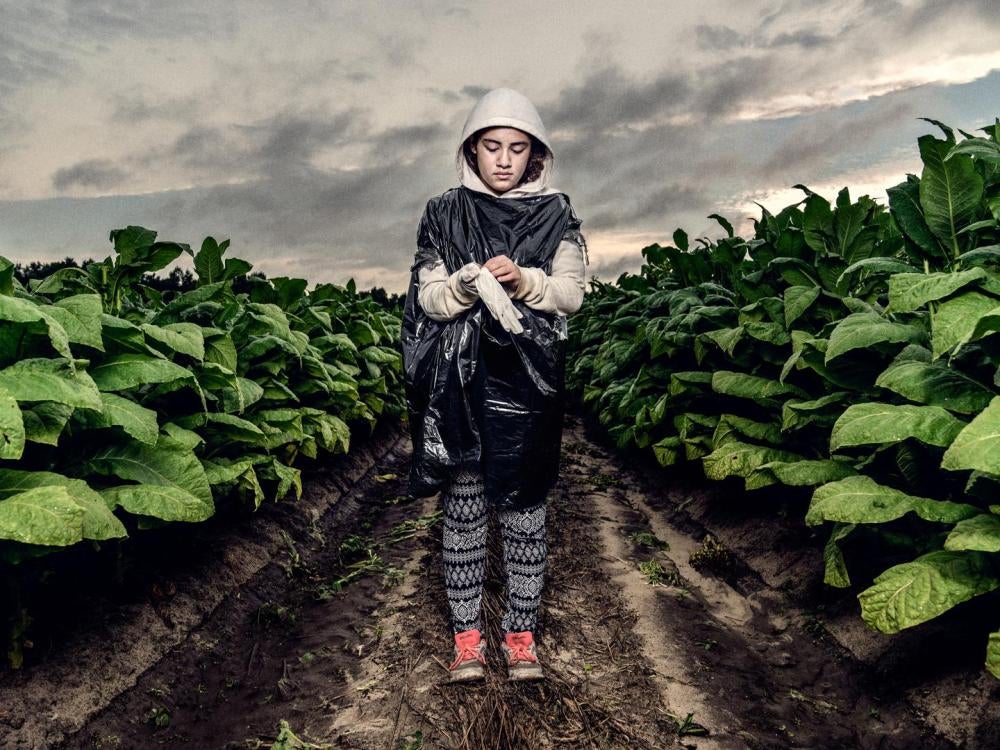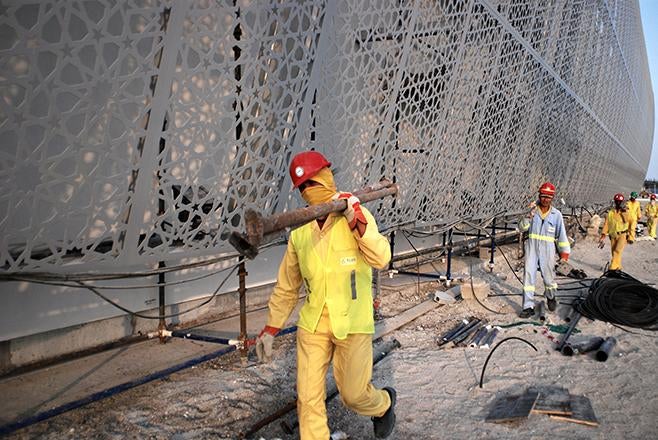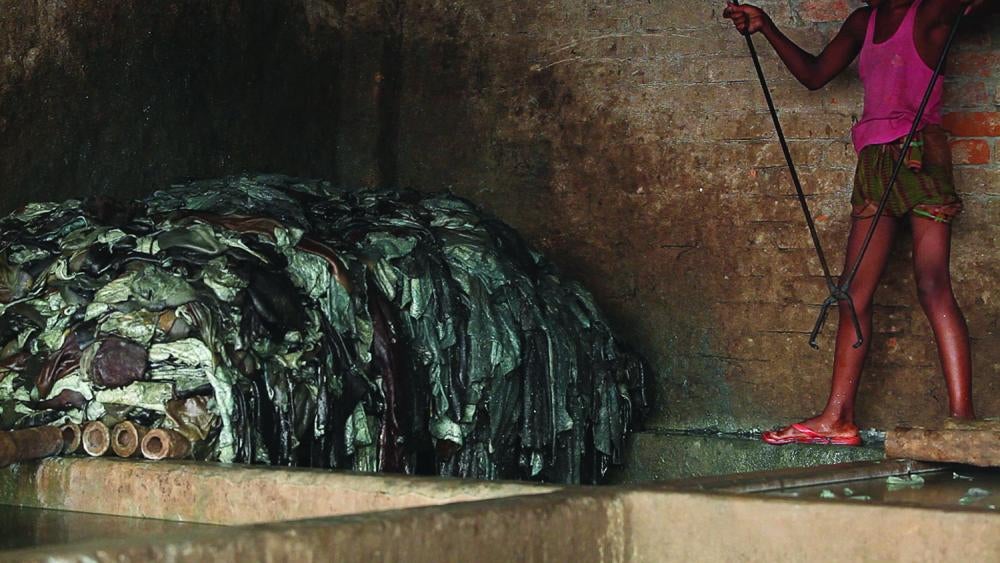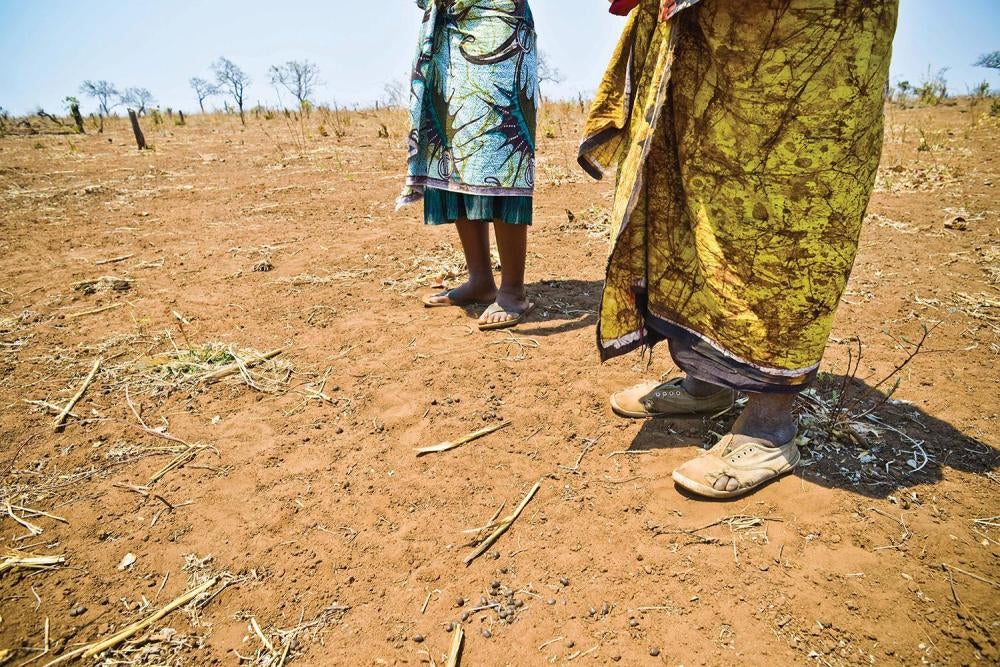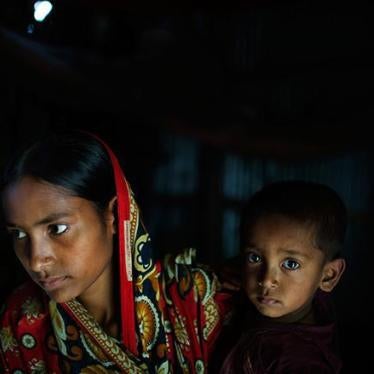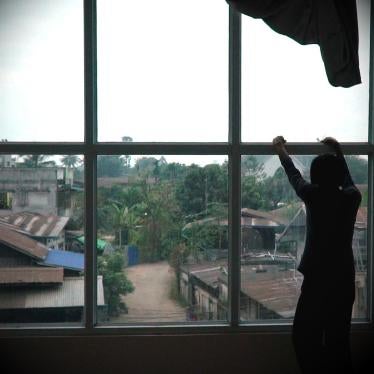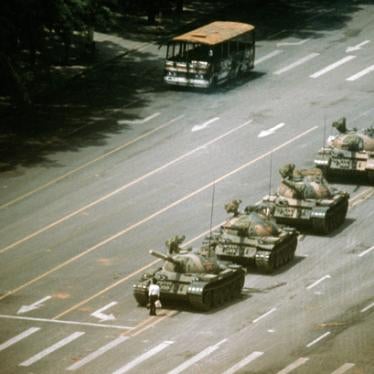A garment worker sews clothing in a building near the site of the Rana Plaza building collapse.
© 2014 G.M.B. Akash/Panos
Women in the sewing division of a factory in Phnom Penh, Cambodia’s capital. Women constitute about 90 percent of the workforce in Cambodia’s garment industry.
© 2014 Samer Muscati/ Human Rights Watch
Victims of the 2013 Rana Plaza building collapse and their families demonstrating at the site of the disaster demanding full compensation.
© 2014 G.M.B. Akash/Panos
Women work in the sewing division of a factory in Phnom Penh, Cambodia’s capital. Women constitute about 90 percent of the workforce in Cambodia’s garment industry, which produces for many international apparel brands. Human Rights Watch has documented that workers in Cambodia frequently experience forced overtime, pregnancybased discrimination, and denial of paid maternity leave.
© 2014 Samer Muscati/Human Rights Watch
Ghana is one of the world’s top 10 gold producers. Around one-third of Ghana’s gold is mined in artisanal and smallscale mines, which mostly operate illegally and use child labor. Two boys, 9 and 12 years old, demonstrate their daily work of washing and sluicing gold ore in Homase, Amansie Central district, Ashanti Region.
© 2014 Juliane Kippenberg/Human Rights Watch.
A 13-year-old boy digs for gold ore at a small-scale mine in Mbeya Region, Tanzania. “I was digging with my colleague,” he said. “I entered into a short pit. When I was digging he told me to come out, and when I was about to come out, the shaft collapsed on me, reaching the level of my chest … they started rescuing me by digging the pit and sent me to Chunya hospital.” The accident knocked the boy unconscious and caused internal injuries. He remained in the hospital for about a week and still occasionally feels pain in his waist when he sits. After the accident, he was scared of returning to the pits, but he felt he had no choice, explaining: “Whenever my aunt travels is when I go, because I need something to sustain myself.” Companies trading in gold have a responsibility to ensure that they do not cause or contribute to child labor.
© 2013 Justin Purefoy/Human Rights Watch
A 16-year-old tobacco worker standing in a tobacco field in North Carolina wearing her work clothes. “I don’t feel any different in the fields than when I was 12,” she said. “I [still] get headaches and … my stomach hurts. And like I feel nauseous…. I just feel like my stomach is like rumbling around. I feel like I’m gonna throw up.”
© 2015 Benedict Evans for Human Rights Watch
Drawn by the promise of jobs, thousands of men from India, Pakistan, Bangladesh, Sri Lanka, and Nepal are working on Saadiyat Island in the United Arab Emirates.
© 2010 Samer Muscati/Human Rights Watch
A boy uses tongs to soak hides in a pit of diluted chemicals in a Hazaribagh leather tannery. Even though international law binding on Bangladesh and Bangladesh’s own labor law prohibit employing children under 18 in harmful or hazardous work, many children work in Hazaribagh’s leather tanneries.
© 2012 Arantxa Cedillo/Human Rights Watch
Female farmers resettled to Mwaladzi received land with poor access to water and limited productivity. The compensation package also included a new house. “The farming land we received is red, not black like we had before. I tried to grow corn and it died. Sorghum also failed…. I am not that satisfied. What I can say is, what is a house without food? I cannot eat my house,” said Maria C.
© 2012 Samer Muscati/Human Rights Watch
(ジュネーブ)— 2016年国際労働総会(International Labour Conference)の参加者は、グローバル・サプライチェーンにおける人権保護のために、拘束力のある国際条約の策定手続きを開始すべきだ、とヒューマン・ライツ・ウォッチは本日発表の報告書内で述べた。世界各地の政府、使用者および労働者が、5月30日から開催の国際労働総会に参加するためジュネーブに集結。グローバル・サプライチェーン上で「ディーセント・ワーク」(decent work、働きがいのある人間らしい仕事)を確保する方法を議論する予定だ。
報告書「
サプライチェーンにおける人権:デューデリジェンスに関し法的拘束力を持つ世界基準の必要性 」(全21ページ)は、グローバル・サプライチェーン上の児童労働ほか労働権侵害、環境破壊、健康の権利・土地権・食糧の権利・水を得る権利の侵害に関する、ヒューマン・ライツ・ウォッチの20年におよぶ調査の成果をもとにしている。
ヒューマン・ライツ・ウォッチの子どもの権利局アソシエートディレクターの
ジュリアン・キッペンバーグ は、「世界中で何百万人もの人びとが、企業の悪しき慣行や政府のずさんな規制が原因で人権侵害に苦しんでいる」と指摘する。「法的に拘束力のあるルールのみが、企業が労働者を搾取したり、労働侵害に寄与しないことを確実にする現実的な手段である。」
本報告書は、グローバル・サプライチェーンの文脈で多岐にわたる人権侵害に焦点を当てている。具体的には数々の労働権侵害や、世界的ブランド各社のアパレルや靴を製造する工場の従業員に対する反組合戦術、多国籍たばこ製造会社が買い付けを行うたばこ農場での有害な児童労働、建築セクターでの出稼ぎ労働者に対する深刻な労働権侵害、世界市場に出回る金を採掘する手掘り金鉱山で起きる死傷事故などの問題について詳述するものだ。
グローバル・サプライチェーン上の人権デューデリジェンスに関する、国際的かつ法的拘束力のある新たな基準は、国連指導原則を基にするべきで、指導原則不順守の解決の一助ともなるであろう。バングラデシュ で起きたラナプラザ・ビル倒壊事故は、縫製セクターにおける劣悪な労働環境と労働権侵害に光を当てた。この事故で従業員1,100人超が犠牲となり、2,000人超が負傷した。バングラデシュでは火災や建物に関する安全対策でいくつかの具体的な改善点がみられるが、その一方でアパレルや靴のサプライチェーン上では、3年たった今も深刻な人権問題がまん延している。2016年にある労働組合員がヒューマン・ライツ・ウォッチに対し、組合活動が原因で暴行や死の脅迫を受けたと証言している。
